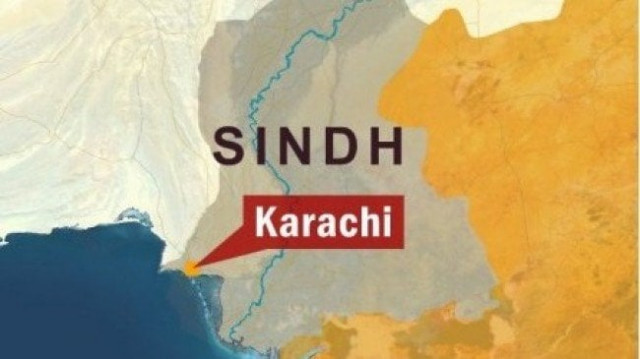Govt does not have the purest intentions to purify water

The government had committed that water purification plants would be set up in every union council of the country. Officials told The Express Tribune that only a few water plants were built sporadically in some towns. “The funds are available, but it seems like the government has sidelined the project,” officials said.
The project, to be managed by the environment ministry, was supposed to start with an initial cost of Rs4.99 billion in 2006. Later, the government decided to increase the project cost to Rs7.8 billion, and this was approved by the Executive Committee of the National Economic Council (ECNEC). In December of that year, the project was transferred to the Ministry of Industries, Production and Special Initiatives. It was then further passed on to become a sub-programme of the Khushal Pakistan Programme.
The aim of the project was to address the high infant mortality rate problem, a staggering 230,000 deaths per year, mostly due to diarrhoea-related infections. The objective was to encourage the population to start using effective and economical point-of-use water purification technologies at the household level to purify drinking water at the union council level.
According to the government’s plan, plants were to be installed in each of the 6,000 union councils in the 40 rural districts of Pakistan.
In Sindh, 1,108 purification plants were to be established by 2007, but only 53 plants were built - 16 in Hyderabad, 35 in Karachi and only two in Dadu.
“But none of them are working,” said Khadim Soomro, programme manager of the Pakistan Safe Drinking Water and Hygiene Promotion, a USAID-funded project. Soomro was posted in Dadu and according to him, USAID supported the Clean Drinking Water for All (CDWA) with an approximate $19 million for three years under its Pakistan Safe Drinking Water and Hygiene Promotion project.
Officials blamed the mismanagement of M/s Green Power (Pvt) Limited for the delay - the company that was given the contract to set up the purification plants in Sindh. According to the initial agreement, the machinery for the plants was to be imported from Turkey.
The work order was issued to the relevant Turkish company in February 2008 and Green Power had to establish the plant within nine to 10 months.
The plants, located in urban Sindh, were required to purify around 4,000 litres of water per hour and in rural areas, the purification of 2,000 litres was required. They were supposed to be operational for eight hours a day.
“Surprisingly, within a few days after the purification plants were set up, they stopped working.
When the matter was investigated, it was found that the quality of the machinery was substandard because it was actually imported from China, instead of Turkey,” officials explained.
A team of the Sindh public health engineering department visited the Karachi and Hyderabad plants to find out what went wrong. Green Power, in their defence, said that Turkey had stopped manufacturing the plant machinery, which is why they had to import the machinery from China.
According to the agreement, all the plants were to be established by October 2008, but now the project is expected to be completed this year. However, neither the government nor the company has taken measures to repair the plants that are out of order.
Munwar Memon, the provincial manager of Wateraid Pakistan, said, “Only 10 to 20 per cent of the plants have been built.
But the bigger problem is the maintenance of the already-built plants because none of them are functional.”
Talking to The Express Tribune, USAID senior adviser Ali Raza said that more than 50 per cent of the plants could not be established even though funds were allocated for them in last year’s budget.
“About 100 filtration plants were installed in different tehsils as a result of this plan, but more than 50 per cent of the work is still left incomplete,” he explained.
Published in the Express Tribune, June 2nd, 2010.



















COMMENTS
Comments are moderated and generally will be posted if they are on-topic and not abusive.
For more information, please see our Comments FAQ